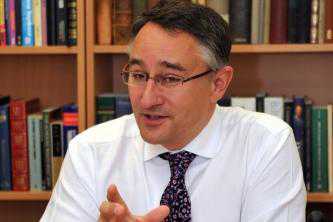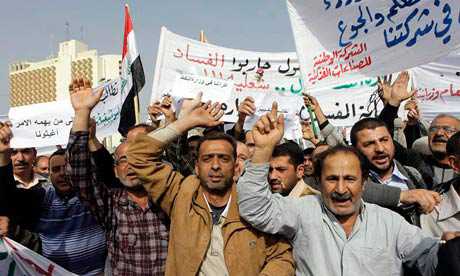Being chums with the criminal class is highly dubious, but in truth, anyone casting aspersions on the Duke’s questionable judgment need look no further than the woman he married, still shares a house with (the Royal Lodge at Windsor) and to whom he remains bizarrely devoted.
Needy, venal and entirely unencumbered with self- knowledge or native wit, the Duchess is yet again the architect of her own misfortune – less than a year after she was filmed in an uncover tabloid sting, seedily asking for cash in exchange for royal access.
Her public declaration that she “abhors paedophilia” was so excruciatingly jejune it had half the nation involuntarily raising its hands mouthwards, in a subconscious attempt to vicariously gag her while the other half hastily logged on to www.republic.org to check if she were some sort of savant secretly committed to the downfall of the monarchy.
But no, she is simply being Sarah. In 1994 a royal aide, Lord Charteris, famously referred to her as “vulgar, vulgar, vulgar” and was condemned as a snob. Fifteen years on, his pithy insight is to be applauded. According to the public relations expert Mark Borkowski, if nothing else, the Duchess is consistent.
“She’s being true to her brand,” he says, simply. “She was a disaster when she was married to the oaf and she remains a complete car crash. She has a completely reckless willingness to engage with anyone who has her phone number: they call her, she spouts her mouth off and the rest is history.”
Talk to long-standing friends and acquaintances and the Duchess’s verbosity becomes a leitmotif. The jolly garrulousness that once made her such refreshingly good company in the rather stilted atmosphere of Buckingham Palace has turned her into a liability.
“Sarah is stupid and greedy which is a fatal combination, and she never knows when to keep her mouth shut,” is the harsh verdict of one royal insider who has known her for more than a decade.
“She can be quite kind, but in recent times she just lives in her own little world and has no conception of the impact her behaviour will have until it all flies up in her face. The most frustrating aspect is that she never learns from her mistakes. Once upon a time, she had everything going for her and she botched it up.”
Having married the Duke, then second in line to the throne, in 1986, the Duchess gave birth to two daughters, Princesses Beatrice, now 22, and Eugenie, 20. But she admitted to an American magazine in 2001 that the marriage began to disintegrate within a week (yes, a week) of the state ceremony because of her husband’s naval duties.
The couple announced their separation in early 1992 and a few months later a set of unfortunate photographs was published in the press showing the American financial manager John Bryan sucking her toes, perhaps as a prelude to restructuring her portfolio.
In the wake of her divorce in 1996, the Duchess spent much of her time in the United States, where she carved out a media career, wrote children’s stories and an autobiography and was in demand for commercial endorsements. America, the crucible of the confessional culture, appeared to be the perfect place for a woman who loved to talk about herself.
Her publicised weight gain and weight loss led to a lengthy involvement as a spokeswoman for WeightWatchers, and there were adverts for cranberry juice and Avon and a chat show before she once again “botched” things up with the cash-for-access scandal and was immortalised bragging to a fake businessman that she could “open up any door you want” in return for £500,000.
The Duchess subsequently admitted – on the Oprah Winfrey Show, where else? – that she had been drinking and was “in the gutter” at that moment. In Britain her reputation was in tatters, but across the Atlantic her tale of adversity still had any number of takers and it was rumoured that the wealthiest television star in the States had offered the down-at-heel duchess a prime-time chat show on her new Oprah Winfrey Network. Whether any such offer remains on the table after the Epstein scandal is a matter of conjecture. Winfrey is an ardent supporter of personal reinvention, but the Duchess of York’s bankability has limits.
She may be a royal by marriage but she hasn’t been invited to the wedding of Prince William and Kate Middleton next month, which she might have been able to turn into a nice little earner (on second thoughts, perhaps that’s why she fell off the 1,900-strong guest list).
“The way Sarah talks now is pure LA psychobabble,” says a source. “People here are flabbergasted that she somehow carries on, lurching from one catastrophe to the next. She’s always complaining about having no money, but then her creditors see her off skiing or holidaying in St Bart’s and it must be terribly galling for them. I’m sure she gets her share of freebies, but even so, she does flaunt her lifestyle even while she complains she can’t afford it.”
Ingrid Seward, editor-in-chief of Majesty magazine, is less damning: “Sarah appears to have lost her centre,” she sighs, although “centre” sounds for all the world like a euphemism for “moral compass”.
“But as far as the Royal family are concerned, this incident is just a blip; if Andrew has government support and the backing of the Queen – and I don’t think she’s going to ask him to fall upon his sword – then it will all blow over, because life has a habit of doing that.”
Professor Bill Purdue, visiting reader in modern history at the Open University, remains sanguine about the impact of the Yorks’ scandal on public perceptions of the monarchy. “Junior royals have a tradition of going off the rails slightly,” he says. “Another Duke of York, George III’s son, Frederick Augustus Hanover, otherwise knows as the Grand Old Duke of York from the nursery rhymes, was mired in a major scandal when it was revealed his mistress was selling army commissions.”
Last month the Royal Opera House raised the curtain on Anna Nicole, a kitschy production that met with critical acclaim. How much more fabulously surreal (not to say extravagantly trashy) would be Fergie: The Musical?
The Telegraph
 Ministers should halt plans for new nuclear power stations in the UK following the disaster in Japan, a West MP said yesterday.
Ministers should halt plans for new nuclear power stations in the UK following the disaster in Japan, a West MP said yesterday.




